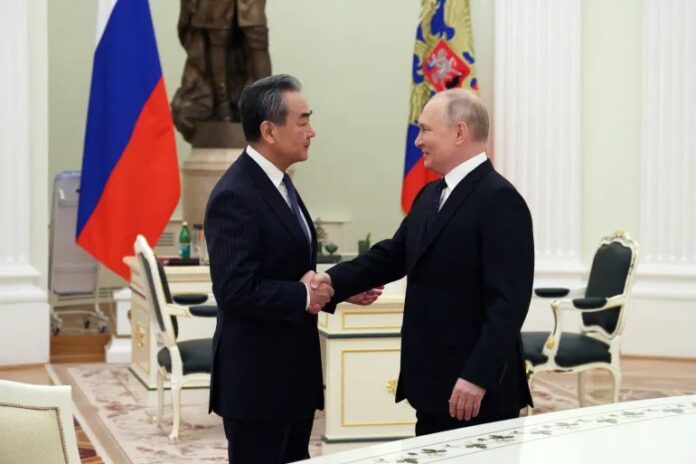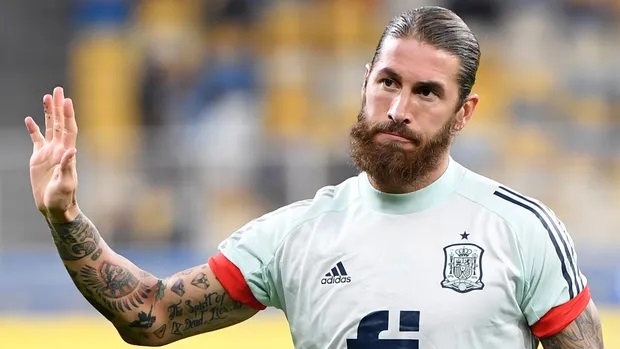China has called for a ceasefire between Ukraine and Russia and a gradual de-escalation of the situation that will pave the way for peace talks, as part of a 12-point proposal to end the conflict.
The plan by China, which was released on Friday morning by the foreign ministry and coincides with the first anniversary of Russia’s invasion of Ukraine, urges an end to Western sanctions against Russia, the establishment of humanitarian corridors for the evacuation of civilians, and steps to ensure the export of grain after disruptions caused global food prices to spike last year.
“Conflict and war benefit no one,” the ministry said in a statement.
“All parties must stay rational and exercise restraint, avoid fanning the flames and aggravating tensions, and prevent the crisis from deteriorating further or even spiralling out of control,” it said.
“All parties should support Russia and Ukraine in working in the same direction and resuming direct dialogue as quickly as possible, so as to gradually deescalate the situation and ultimately reach a comprehensive ceasefire.”
The proposal mainly elaborates on long-held Chinese positions, including that all countries’ “sovereignty, independence and territorial integrity be effectively guaranteed”. The plan also called for an end to the “Cold War mentality”, which is Beijing’s standard term for what it regards as global dominance by the United States and its interference in other countries’ affairs.
Beijing — which claims to be neutral in the conflict — has a “no limits” relationship with Russia and has refused to criticise Moscow’s invasion of Ukraine or even refer to it as such. It has also accused the West of provoking the conflict and “fanning the flames” by providing Ukraine with arms.
Beijing’s top diplomat Wang Yi visited Moscow this week and pledged a deeper relationship between the countries, while Putin hailed “new frontiers” in ties with Beijing and signalled that China’s leader Xi Jinping would visit Russia.
Xi is expected to deliver a “peace speech” on Friday, though some analysts have cast doubt on whether Beijing’s efforts to act as a peacemaker will go beyond rhetoric.
The ambassador of the European Union to China, Jorge Toledo, told reporters at a briefing in Beijing on Friday that China had released a position paper not a peace proposal, and the EU will study it.
“If the position paper is a positive sign for Ukraine then it’s a positive sign for the EU, although we are studying the paper closely,” he said.
Ukraine called the “position paper” “a good sign” and said it expects China to be more active in its support of Ukraine.
“We hope they also urge Russia to stop the war and withdraw its troops,” Ukraine’s charge d’affaires Zhanna Leshchynska said at the same briefing.
US State Department spokesman Ned Price had said earlier on Thursday that Washington would reserve judgement on the proposal but that China’s allegiance with Russia meant it was not a neutral mediator.
“We would like to see nothing more than a just and durable peace … but we are sceptical that reports of a proposal like this will be a constructive path forward,” he said.
On Thursday, China abstained from voting when the United Nations General Assembly (UNGA) approved a nonbinding resolution that called for Russia to end hostilities in Ukraine and withdraw its forces.
The UNGA overwhelmingly adopted the resolution that demanded Moscow withdraw from Ukraine and stop fighting.
There were 141 votes in favour of the resolution and 32 abstentions. Six countries joined Russia to vote against the resolution: Belarus, North Korea, Eritrea, Mali, Nicaragua and Syria.
Russia’s Deputy UN Ambassador Dmitry Polyanskiy dismissed the UN resolution as “useless”.
Ukrainian President Volodymyr Zelenskyy wrote on Twitter that the UN vote was a “powerful sign of the unflagging global support” for Ukraine.
Far from the front lines of Ukraine, Russia’s invasion of its neighbour has damaged the world economy and a Cold War chill has set into international relations.
Washington has said China is considering providing weapons to Russia, a move that could intensify the conflict into a confrontation between Russia and China on one side and Ukraine and the US-led NATO military alliance on the other.







